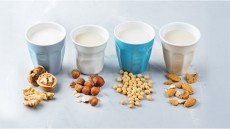South Asia Radius
FSSAI returns to court in bid to reinstate Maggi ban

The Bombay High Court last month authorised the return of the noodles to the shelves after the FSSAI, the regulator, ordered their removal in June following claims by a state food department that it had found excess traces of lead and monosodium glutamate in a sample.
Independent international laboratories, as well as court-mandated testing facilities, were unable to replicate the findings by the Uttar Pradesh Food and Drug Administration, leading Mumbai’s top court to issue the all-clear, calling the FSSAI’s practices "arbitrary, unjust and violative of Article 14 of the Constitution".
The court ordered fresh tests, which subsequently came back negative, though the FSSAI is now challenging the process of gaining these results through its current action.
The High Court order was “erroneous”, according to the regulator, which has also questioned the “sanctity” of the samples provided to the government-approved labs for the re-test, sources with the FSSAI told The Hindu.
The FSSAI believes that the High Court was wrong to ask Nestlé India, which manufactures Maggi noodles, to provide the fresh samples itself instead of asking a neutral authority to do so.
“They said it was like asking a person under suspicion to give evidence against himself,” The Hindu reported. “Further, they said that the element of surprise was also lost.”
However, it is documented that the latest Maggi samples underwent two set of tests in three accredited and FSSAI-approved laboratories, which showed the presence of no harmful elements in the products.
In a statement, Nestlé said it was aware of the Supreme Court action, though was at the time of publishing the company was not familiar with the details.
"We have not been served a notice about this and are not yet aware of its content. However, we would like to reiterate that Nestle India is confident of the quality and safety of Maggi Noodles and so we will defend ourselves vigorously,” the company said.
More stories from South Asia...
Delhi study busts accepted views on class origins of childhood obesity
A study has identified household eating practices as being mostly responsible for childhood obesity in India, not junk-food consumption and high-calorie diets as was previously understood.
The study, which was conducted on the children of staff at a Delhi hospital and published in Plos One, found that better educated mothers were more likely to bring up children of normal weight.
However, children whose mothers had ascended the class system were especially vulnerable to obesity problems.
“Under-nutrition was common among the economically disadvantaged housekeeping staff, [whereas] children of doctors tended to be normally nourished, and most of the overweight children were kids of nurses,” the study said.
The results suggest that 80% of underweight children were from the low-income housekeeping staff, with no obese children in that group.
“The majority of obese children were the children of nurses [62.5%],” the report said. “Although the most affluent group was families of doctors, the incidence of malnutrition [under and over nutrition] was least in this group.”
Health consciousness drives lightning breakfast cereals growth
India's breakfast cereal market has grown at an annualised rate of just over 22% since 2010, with Kellogg's, Bagrry and PepsiCo Quaker together capturing more than three-quarters of the market.
Hot cereals including oats, oat bran and wheat bran have been growing quickest due to a prevailing preference for hot breakfasts in India, according to Research & Markets, which compiled the study.
With its greater level of urbanisation and higher incomes, the west of India had the biggest market share, followed by northern and southern states. Cereal consumers are largely urbanites.
On the whole, manufacturers tend to promote ranges that appeal separately to kids, adults and the entire family, the market researcher said.
Cornflake-type cereals dominate market share, followed by oats and muesli, which are growing much faster than conventional cereals as people become more health conscious.
Awareness of cardiovascular diseases, diabetes and obesity is a significant contributor to the growth of breakfast cereal, with many doctors and nutritionists, in the home and in the consultation room, recommending brands for breakfast.
This is something manufacturers assiduously support and are happy to play the health card whenever possible, again contributing to the segment’s growth.

















